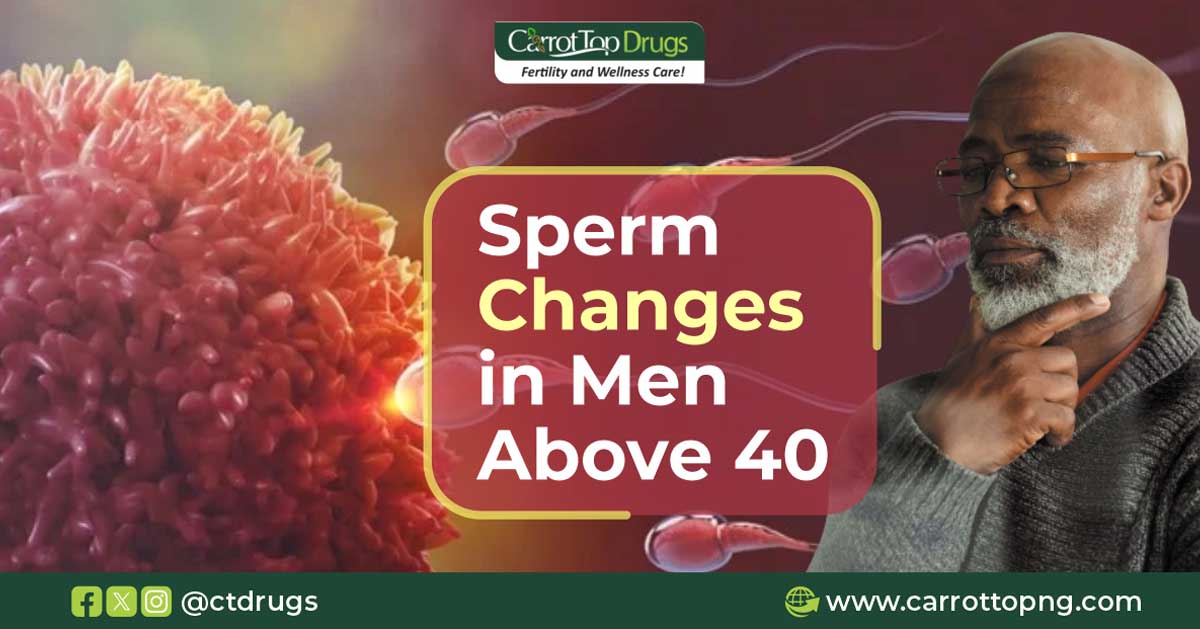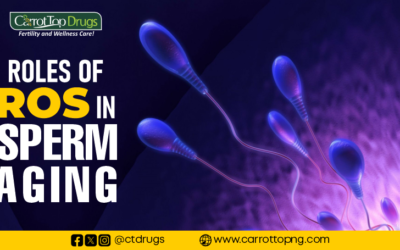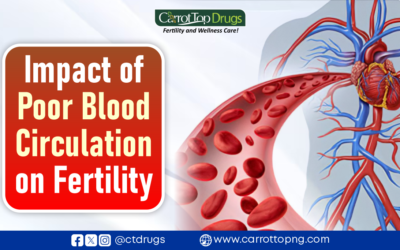Introduction
Are you or your partner above 40 and contemplating the journey of starting a family? It’s essential to understand the transformations in sperm health that occur as men age, especially focusing on the changes in sperm changes in men above 40. This knowledge is key for informed family planning and a fulfilling reproductive experience. In this blog post, we will unravel the nuances of these changes, explore their impact on fertility, and delve into practical tips to promote healthy sperm. Let’s dive into this crucial aspect of reproductive health.
Understanding Sperm Cells
Sperm, those tiny yet mighty male reproductive cells, play a pivotal role in the creation of new life. However, as men age, the quality and quantity of these sperm can undergo significant transformations. Studies consistently show that after the age of 40, men may experience a decline in various critical aspects of sperm health. This decline encompasses reduced sperm motility, altered morphology, and an overall decrease in sperm count. All these sperm changes may be the reason for the delay in conception.
As men age, shifts occur in the quality and quantity of sperm, potentially impacting fertility. These changes can range from reduced motility, affecting the sperm’s ability to reach the egg, to alterations in morphology, which could influence their ability to penetrate and fertilize the egg. Hence, ensuring optimal health of sperm changes in men above 40 is a vital consideration for those planning to start or expand their families later in life.
Sperm Changes in Men Above 40: A Detailed Insight
Motility Decline:
One of the significant aspects of sperm changes in men above 40 involves a decline in sperm motility. This refers to the sperm cells’ ability to move effectively. Research has indicated that as men age, the proportion of sperm displaying rapid and forward movement diminishes, impacting their capacity to reach and fertilize the egg successfully.
Morphological Alterations:
Sperm changes in men encompass notable alterations in sperm morphology, referring to the size, shape, and structure of sperm cells. As men age, there is an increased occurrence of sperm with irregular shapes and abnormalities. These deviations from the standard morphology can impede the sperm’s ability to penetrate the protective layers of the egg, hindering the fertilization process.
Overall Sperm Count Reduction:
A significant aspect of sperm change is a decrease in the overall sperm count within the semen. Studies have consistently shown that as men age, the volume of semen produced and the number of sperm per milliliter decrease. This reduction in sperm count directly impacts the total number of sperm available for fertilization.
Genetic Integrity and DNA Fragmentation:
Sperm changes in men above 40 also encompass the genetic integrity of thesperm. Aging is associated with an increased likelihood of sperm carrying genetic mutations or DNA fragmentation. These genetic alterations can potentially affect the health and development of the resulting offspring.
Semen Volume Reduction:
Aging contributes to a reduction in semen volume, one of the notable sperm changes. Semen volume directly impacts the number of sperm cells delivered during ejaculation. With age, the seminal vesicles may produce less seminal fluid, resulting in decreased semen volume.
Ejaculatory Dysfunction:
Sperm changes in men above 40 often involve a higher incidence of ejaculatory dysfunction. This can manifest as difficulties in achieving or maintaining an erection, delayed ejaculation, or a decreased force of ejaculation. These dysfunctions can impede the sperm’s successful release into the female reproductive tract, impacting fertility.
Hormonal Fluctuations:
Age-related hormonal fluctuations play a vital role in sperm changes in men above 40. Testosterone levels tend to decrease as men age, impacting the production and quality of sperm. Hormonal changes can influence various aspects of sperm health, including motility, morphology, and overall fertility.
Oxidative Stress and Sperm Damage:
Oxidative stress increases with age and is associated with higher levels of reactive oxygen species that can damage sperm cells. This oxidative damage affects the integrity of sperm DNA, leading to genetic alterations and potential fertility issues.
Lifestyle Factors That Affect Sperm Quality in Men Above 40
Dietary Habits:
Diet plays a vital role in sperm changes in men above 40. A well-rounded, nutritious diet rich in essential vitamins, minerals, and antioxidants can positively impact sperm health. Conversely, a diet high in processed foods, saturated fats, and sugars can adversely affect sperm quality.
Physical Activity:
Regular physical activity is a lifestyle factor that significantly influences sperm changes in men above 40. Exercise supports overall well-being and weight management, both of which contribute to better sperm quality and motility.
Tobacco and Alcohol Use:
Both tobacco and excessive alcohol consumption can negatively affect sperm changes in men above 40. These substances have been linked to lower sperm count, altered sperm morphology, and reduced sperm motility, emphasizing the importance of minimizing or avoiding these habits.
Stress Management:
Chronic stress can impact sperm health in men above 40. High levels of stress trigger the release of cortisol and other stress hormones, which can interfere with hormone regulation and lead to reduced sperm quality. Employing stress management techniques is vital for maintaining optimal sperm health.
Sleep Quality and Duration:
Inadequate sleep or poor sleep quality can contribute to sperm changes in men above 40. Sufficient and restful sleep is crucial for hormonal balance, including testosterone levels, which directly influence sperm production and quality.
Hydration:
Maintaining proper hydration is a crucial lifestyle factor affecting sperm changes in men above 40. Dehydration can lead to a decrease in semen volume and concentration, potentially affecting fertility.
Exposure to Environmental Toxins:
Exposure to environmental toxins, such as pesticides, heavy metals, and pollutants, can adversely affect sperm changes in men above 40. Minimizing exposure to these toxins is essential for supporting optimal sperm health.
Sauna and Hot Tub Usage:
Frequent and prolonged exposure to high temperatures, such as saunas and hot tubs, can temporarily decrease sperm count and quality. Managing the duration and frequency of exposure to heat is crucial in maintaining sperm health.
Caffeine Consumption:
Sperm changes in men above 40 can be influenced by caffeine intake. Excessive consumption of caffeine, commonly found in coffee and energy drinks, may have a negative impact on sperm motility and morphology. Moderation is key.
Drug Use:
Recreational drug use significantly impacts sperm changes in men above 40. Various illicit drugs can severely affect sperm quality, leading to potential fertility issues. Avoiding drug use is imperative for maintaining optimal sperm health.
Tips for Healthy Sperm Changes in Men Above 40
Balanced Diet
Maintaining a well-balanced diet is fundamental for promoting good sperm changes in men above 40. A diet rich in fruits, vegetables, whole grains, lean proteins, and healthy fats provides essential nutrients crucial for optimal sperm quality.
Hydration
Staying adequately hydrated is essential for overall well-being and plays a vital role in supporting sperm cells. Drinking sufficient water helps maintain semen volume and keeps sperm cells at the right consistency for successful fertilization.
A Lifestyle of Exercise
Engaging in regular physical exercise promotes good blood circulation, weight management, and overall well-being, all of which are linked to improved sperm changes in men above 40 and motility. This makes it a valuable tip for supporting healthy sperm cells.
keep Healthy Weight
Keeping a healthy weight is crucial for maintaining optimal sperm changes in men above 40. Both being underweight or overweight can negatively impact sperm cells, including production and quality. Maintaining an appropriate weight through a balanced diet and regular exercise is key.
Manage Stress
Chronic stress can affect hormone levels, including those related to sperm changes in men above 40. Employing stress management techniques like meditation, deep breathing, or engaging in hobbies can help maintain healthy sperm cells by reducing stress levels.
Reduce Alcohol Consumption
Moderation in alcohol consumption and avoiding tobacco products are vital tips for supporting healthy sperm cells. Excessive alcohol and tobacco use can impair sperm cells, including motility and morphology.
Reduce Caffeine
While moderate caffeine consumption is generally considered safe, excessive intake can affect sperm changes in men above 40. It’s advisable to moderate caffeine intake from sources like coffee, tea, and energy drinks for healthier sperm cells.
Quality Sleep
Ensuring sufficient and quality sleep is a valuable tip for supporting healthy sperm changes in men above 40. Proper sleep supports the body’s ability to regulate hormones, including those crucial for sperm production.
Regular Sexual Activity
Engaging in regular sexual activity can help maintain healthy sperm cells. Frequent ejaculation helps prevent the build-up of older sperm, ensuring a fresh and healthy supply during each ejaculation, promoting optimal sperm changes in men above 40.
Reduce Exposure to Temperature
Prolonged exposure to excessive heat, such as from hot baths, saunas, or laptops on the lap, can negatively affect sperm production. Avoiding activities that can lead to overheating of the testicles is advisable for maintaining healthy sperm cells.
Supplements
Since nutrition is very vital to sperm cell health, then, there may be the need to optimize your nutritional status with supplements. We have a number of supplements for men fertility like our Evergreen Formular for Men, Evergreen Motility and Evergreen Action for Men that boost libido and sperm quality. For men increasing in age, we recommend Hale and Hearty Men.
Conclusion
Starting a family is a beautiful and meaningful journey. For those embarking on this journey after 40, being well-informed about sperm changes in men above 40 is empowering. Armed with this knowledge, couples can take proactive steps to support healthy sperm and enhance their chances of successful conception. Age should never be a deterrent to realizing the dream of parenthood. With a proactive mindset and the right lifestyle adjustments, the path to a joyful family life remains open and promising, regardless of age.
Frequently Asked Questions
Q: Can men above 40 still father a child?
A: Yes, although sperm quality may decline with age, men can still father a child.
Q: Are there medical treatments to improve sperm quality?
A: Yes, there are medical treatments and lifestyle changes that can improve sperm quality.
Q: Does age affect the health of the child?
A: Advanced paternal age has been associated with certain health risks for the child.
Q: Can lifestyle changes improve sperm health?
A: Yes, adopting a healthy lifestyle can positively impact sperm health.
Q: When should one consult a fertility specialist?
A: If experiencing difficulty conceiving, consulting a fertility specialist is recommended.

















